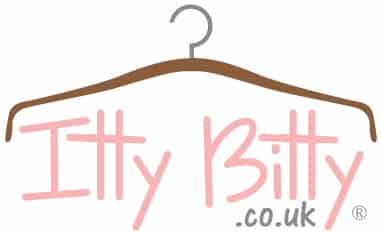The Ultimate Guide to Washing Baby Clothes
Washing baby clothes may seem like a simple task, but it’s actually more complex than you might think. Babies have sensitive skin, and their clothes often carry harmful bacteria on newborn baby clothes, and dirt that need to be properly removed. In this ultimate guide to washing baby clothes, we’ll provide you with all the information you need to ensure your baby’s clothes are clean and safe. From choosing the right baby laundry detergent to understanding the different wash cycles, you’ll learn everything you need to know.
1: Use a Gentle Detergent
To keep your baby’s clothes soft and clean, use a gentle and fragrance-free detergent. Avoid detergents with harsh chemicals or strong fragrances, as they can irritate your baby’s delicate skin. You can choose detergents specially formulated for babies or use mild, unscented options that are gentle on their skin.
2: Washed Separately the Clothes
It is essential to separate your baby’s clothes according to color to avoid color bleeding. Wash light-colored clothes separately from dark-colored clothes to avoid any transfer of color.
3: Pre-Treating Stains
It’s common for your baby’s clothes to get stained with food, spit-up, or poop. Pre-treat the stains with a baby-friendly stain remover or wash the stains with a mix of white vinegar and water, which is particularly effective.
4: Wash in Warm Water
Wash your baby’s clothes in warm water to ensure proper cleaning and sterilization. Make sure not to exceed the recommended water temperature specified on the clothes’ care label.
5: Avoid Fabric Softeners
Avoid using fabric softeners on your baby’s clothes, as they contain chemicals that can cause skin irritation. Instead, use dryer balls or vinegar as natural and safe alternatives to soften the clothes.
6: Dry on Low Heat
To avoid shrinkage and damage to the fabric, dry your baby’s clothes on a low-heat setting. It’s essential not to over-dry the clothes as it can result in stiffness or irritation to the skin. Always check the care label first to determine the appropriate drying method.
7: Iron When Needed
Ironing is not always necessary for baby clothes, but it can help sanitize the clothes and make them look neater. If you decide to iron your baby’s clothes, use a low heat setting and iron them inside out to avoid any potential damage to the fabric.
What laundry detergent should you use to wash baby clothes
A liquid non-bio laundry detergent is best for washing baby clothes. On the type of laundry detergent you should use for washing baby clothes, the NHS says:
“There’s no evidence that using washing powders with enzymes (bio powders) or fabric conditioners will irritate your baby’s skin.”
However, some babies do have particularly sensitive skin and so you may want to get a laundry detergent either specifically aimed at children’s clothes or one that’s best for eczema and sensitive skin.
What temperature should you wash baby clothes at?
You don’t need to wash your baby’s clothes at really high temperatures. A 30-degree or 40-degree cycle is just fine, and the right detergent will get your little one’s clothes clean.
However if their outfits have poo or baby sick on them, the NHS recommends removing the mess and flushing it down the loo before washing the clothes at 60 degrees. You should also wash reusable nappies at this higher temperature too.
Should you use fabric softener on baby clothes?
You spend a lot of time cuddling your baby. So for extra snuggly softness, why not add a slosh of fabric softener to your family wash.
Read the care labels on the clothes first though. Some baby clothes are treated with flame-resistant chemicals to keep your little one safe. Fabric softener can make this less effective, so always check before you add any to your wash.
How can you remove stubborn stains?
For such a tiny person, your baby creates a lot of mess. From leaking nappies to baby weaning (two words: carrot puree), you’ll be faced with different spills as they grow.
Alternatively, use Fairy Non Bio Stain Remover Powder before washing your baby’s clothes as normal. Easy peasy.
SHOULD I PRE-WASH BABY CLOTHES?
Any new clothing item for your newborn, whether purchased from the store or hand-me-down, should be washed before dressing your young one in it. You cannot know what might have come into contact with the clothes before you got them. Remember that your baby’s skin is likely to become more irritated or develop a rash due to dust and dirt.
Also, did you know that most baby clothes, including newborns, are sprayed with chemicals such as optical brighteners to look new, crisp, bright, and unwrinkled in the store? This makes washing baby clothes before wearing an excellent idea to protect your little ones’ sensitive skin.
Pre-washing baby clothes will help remove these toxic sprays from the fabric, therefore helping prevent the chemicals from coming into contact with your newborn’s skin.
When washing your newborn’s new clothes, remember to check the clothing for stickers. Most stores add size stickers to clothing items. These stickers are easy to pull off before washing, but leaving the sticker on might leave a gooey residue. That is how to wash baby clothes the first time.
CAN I WASH MY BABY’S CLOTHES WITH OTHER CLOTHING?
If your baby is using a different laundry detergent from the rest of the family, then you can wash her clothes separately from those of the rest. But if you change the entire household to baby-safe detergent, all the clothes can be washed together.
If your primary purpose for isolating baby cloth is hygiene, you should remember that your baby is guaranteed to come into contact with your clothing. When holding and cuddling your baby, their skin touches your clothes.
The Importance of Proper Skin Care for a Delicate Baby’s Skin
A baby’s skin is delicate and sensitive, with a thinner outer layer and less natural oil production compared to adults. This makes their skin more prone to dryness, irritation, and rashes. Their skin also has a higher absorption rate, which means that it can quickly absorb ingredients from skincare products or detergents, potentially causing further irritation. Proper care and attention are necessary to keep a baby’s skin hydrated, healthy, and protected.
Conclusion
Washing your baby’s clothes can be a simple and effective process as long as you take the necessary precautions. Use a gentle or mild detergent, separate the colors, pre-treat stains like poop stains, with safe and natural products, wash with warm water, avoid fabric softeners, wash baby clothes separately, newborn clothes, dry on low heat, and iron when needed. With these tips, you can keep your baby’s clothes clean, fresh, and safe for their sensitive skin.

